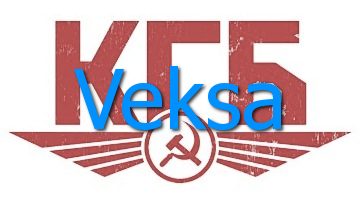According to some experts dissidents abroad were becoming a more serious problem for the Soviets and deserved a more professional coverage than the apparently less sophisticated personnel of the fifth directorate.
An appropriate example of the earnestness of the first chief directorate can be seen from the “Dekadent” dossier that the Lithuanian KGB initiated with the 1977 arrival of dissident writer Tomas Venclova in the USA. The Lithuanian KGB foreign intelligence operatives kept up surveillance of Venclova in the USA and were active in spreading disinformation about him so as to compromise him amongst the Lithuanian community abroad. Simultaneously the fifth directorate was in close contact with Venclova's wife who had remained in the occupied homeland. The KGB exploited Venclova's longing for his daughter and it wasn't difficult for the KGB to play on these emotions. In helping to maximize their ability with the emotional manipulation of Venclova, the KGB sent to the west an operative codenamed “Harris” to personally drive this effort. As expected, the KGB opened and read all the mail sent by Venclova to family and relatives, the copies of which are still in the “Dekadent” dossier.
The Lithuanian KGB foreign intelligence sector had also compiled some historical material in their archives which remained intact when independence was regained in 1991. In the immediate post-war years the KGB as a whole adopted a very aggressive stance. In 1945 the Lithuanian KGB managed to abduct General Petras Kubiliunas from West Germany in a Hollywood scenario fashion. They used chloroform to subdue and then whisked him away to East Germany and on to Lithuania. Kubiliunas provided them with detailed information about Lithuanian exile groups.
The Lithuanian files indicated that KGB counter-intelligence operations of all three occupied republics were, at least from their own perspective, successful. The Lithuanian KGB, through operatives Òrest'and ‘Tuvim'……. were able to infiltrate many Lithuanian exile organizations. Since they were voted into leading positions and entrusted with sensitive information, upon returning to occupied Lithuania, they caused serious consternation and confusion amongst freedom-fighting Lithuanian organizations in the West.
Even though most of the foreign intelligence files of the Estonian KGB were either destroyed or removed to Russia, it has still been possible to identify some of the ‘sleepers' embedded within the Estonian exile community.
Consider the following excerpt from a speech delivered at the conference of Estonian organizations in Sweden in 1960. One would be hard put to suggest that the thoughts and emotions of the speaker could originate from a KGB operative living a seemingly normal life in Stockholm.
“The propaganda of our enemy (the USSR. ed.) has not been able to persuade Estonians about the benefits of the Soviet system and the high qualities of its main proponent, communist Russia. The best counter-propaganda is actual life within the soviet reality. Most adults have, as a comparison, memories of pre-war Estonia which are held as a precious legacy and passed on from generation to generation. Estonians (in occupied Estonia. ed.) are daily painfully wounded by the arrogance of the speakers of the foreign language who daily lord it over them as the ones in power. The land belongs to Estonians. It's our home.
“These bosses can be spotted a mile away from his unkempt appearance, slovenly gestures and bullying voice. Throughout their regime, in the government built after communist principles, in economic life and everyday life in general, where bureaucrats dominate – in this system, nothing works. From water taps to electricity, from the peeling paint, from rusting wheat combines to falling plaster – it's all a disaster.
“To live the Soviet reality is like living beside a swamp that emits poisonous gases constantly. All the hypocrisy and corruption can be oppressive, make one despondent and weaken one's moral resistance. …… If Estonian independence and freedom were still to be delayed for an extended period, in spite of all the negative influences of the Soviet system, Estonians in their occupied homeland would still maintain a sense of nationality, their connection with their past, their cultural heritage and a strong need to fight for their country's freedom and independence. They insist that Estonia belongs amongst the countries of the West. …… If our enemies think that the only weapon in a battle is power, then Estonians know that our spirit is also power.”
The speech was full of the most ‘patriotic' slogans and allegories, uncompromisingly anti-Soviet as well as anti-Russian. It conjured up the most dire conditions of life in the Soviet system and summoned all possible resources to continue the righteous fight for Estonia's freedom. It echoed the cold-war sentiments in the extreme. In hindsight, perhaps it's unyielding ultra-patriotism should have been a signal of it's phoniness.
The stirring speech was delivered by Juhan Tuldava, a.k.a. Athur-Johan Haman, Artur-Juhan Haman, Arthur Tuldava, Janis Jugans, Arthur Haman, Arturo, Hanns Quecke, sent by the KGB under deep cover, to Sweden. (To be cont'd.)
Laas Leivat




